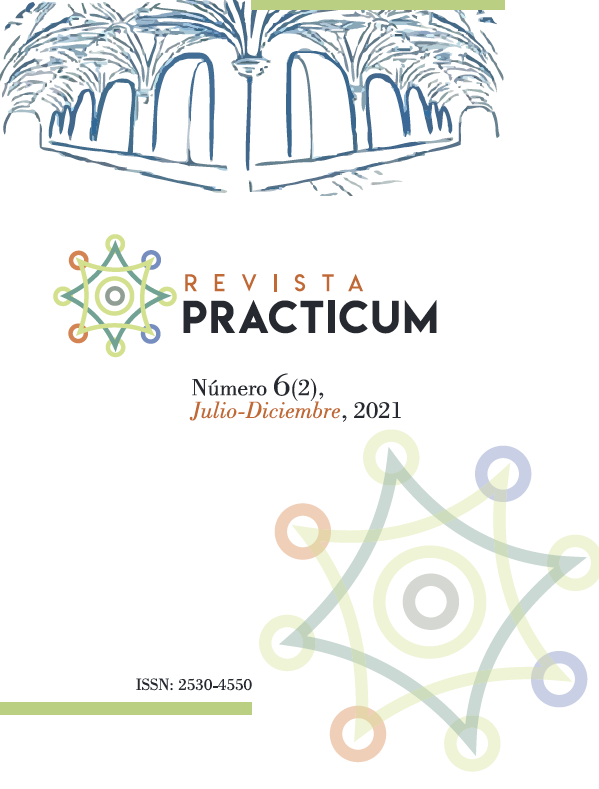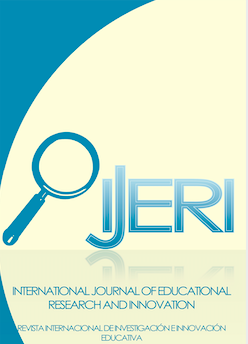Event management – teaching and assessment methodology of an Unit in higher education
DOI:
https://doi.org/10.24310/RevPracticumrep.v6i2.10578Keywords:
Event management, learning assessment, teaching methodology, hard and soft skills.Abstract
This article intends to present a study on the teaching and evaluation methodology of the event management course unit, ensuring the acquisition of knowledge and skills appropriate to the demands and needs of the labour market. The main objectives are: to understand the importance of teaching event management; explain the teaching and collaborative assessment methodology in the Course; identify the main advantages of the methodology used to acquire scientific and technical knowledge. Methodologically, in the empirical dimension of our work, which is essentially descriptive in nature, we try to explain all the teaching and assessment tools in use and how they help students in acquiring knowledge. The present study examines how active and collaborative teaching can be used in undergraduate courses, based on practical methods to help students acquire the necessary skills, outlining the main competencies and highlighting the importance of specific training in event management.
Downloads
Metrics
References
Bilhim, J. A. (2009). Gestão Estratégica de Recursos Humanos. Instituto Superior de Ciências Sociais e Políticas.
Boterf, G. L. (2001). Ingeniería de las competencias. Ediciones Gestion 2000.
England, T. K., Nagel, G. L., & Salter, S. (2020). Using collaborative learning to develop students’ soft skills. Journal of Education for Business, 95(2) 106-114. https://doi.org/10.1080/08832323.2019.1599797
ESTGL. (s.d.). Missão. Obtido de ESTGL: https://www.estgl.ipv.pt/docs/missao.pdf
Fernández-Berrocal, P., Salovey, P., Ramos, N., & Extremera, N. (2001). Cultura, inteligencia emocional percibida y ajuste emocional: un estudio preliminar. Revista Electrónica de Motivación y Emoción, 7(4). http://reme.uji.es/llista/llista.htm
International Comission on Education for the Twenty-first century. (1996). Learning: the treasure within. UNESCO. https://unesdoc.unesco.org/ark:/48223/pf0000109590.
Konig, F. R., & Bridi, F. R. S. (2019). O ensino colaborativo e a gestão das práticas pedagógicas: avaliando efeitos. Revista Eletrônica de Educação, 13(1), 278-290. http://dx.doi.org/10.14244/198271992695.
Kussmaul, C. (2020). Guiding students to develop essential skills. Communications of the ACM, 63(2), 35-37. https://doi.org/10.1145/3376893
Lanz, H. R. (2016). Reflexões sobre práticas de sala de aula e competências na formação de professores da universidade de Colónia, Alemanha. Revista Practicum, 1, 1, 99-113. https://doi.org/10.24310/RevPracticumrep.v1i1.8259
Misseyanni, A., Lytras, M., Papadopoulou, P., & Maroul, C. (Eds.) (2018). Active learning strategies in higher education: Teaching for leadership, Innovation, and creativity. Emerald Publishing Limited.
Pacheco, N. E., & Fernández-Berrocal, P. (2004). EL papel de la inteleigência emocional em el alumnado: evidencias empíricas. Revista Electrónica de Envestigación Educativa, 2(6), 1-17. https://bit.ly/3DbIRu8
Perrenoud, P. (1999). Construire des compétences, tout um programme. Vie pédagogique, 112, 16-20. https://bit.ly/3Db83kI
Santos, P., & Bonito, A. (fev. 2010) – Interagir com o mundo do trabalho – o ensino colaborativo e o voluntariado. Atas do Congresso Ibérico Ensino Superior em Mudança: Tensões e Possibilidades, Universidade do Minho https://bit.ly/3l7jaVu
Santos, P.M. (2019). Secretariado e planeamento estratégico. Assessoria e gestão de eventos. Edições Esgotadas.
Yin, R. (2005). Estudo de Caso. Planejamento e Métodos. Bookman.
Downloads
Published
How to Cite
Issue
Section
License
Acceptance of the work implies that the author grants Revista Prácticum the exclusive rights to reproduce, distribute and sell his or her work worldwide, both in digital and paper formats, CD-ROM, etc.
Likewise, the authors shall grant Revista Prácticum the rights of dissemination, public communication on the Internet and IT networks, data buses, as well as any other portals or electronic devices for online consultation of its contents and extracts, under the conditions of the portal, repositories or databases where the work is stored.
Revista Prácticum allows authors to publish and disseminate their articles and works on their personal websites, research teams, institutional repositories and scientific databases. All this in accordance with the Creative Commons 4.0 License









8.png)








